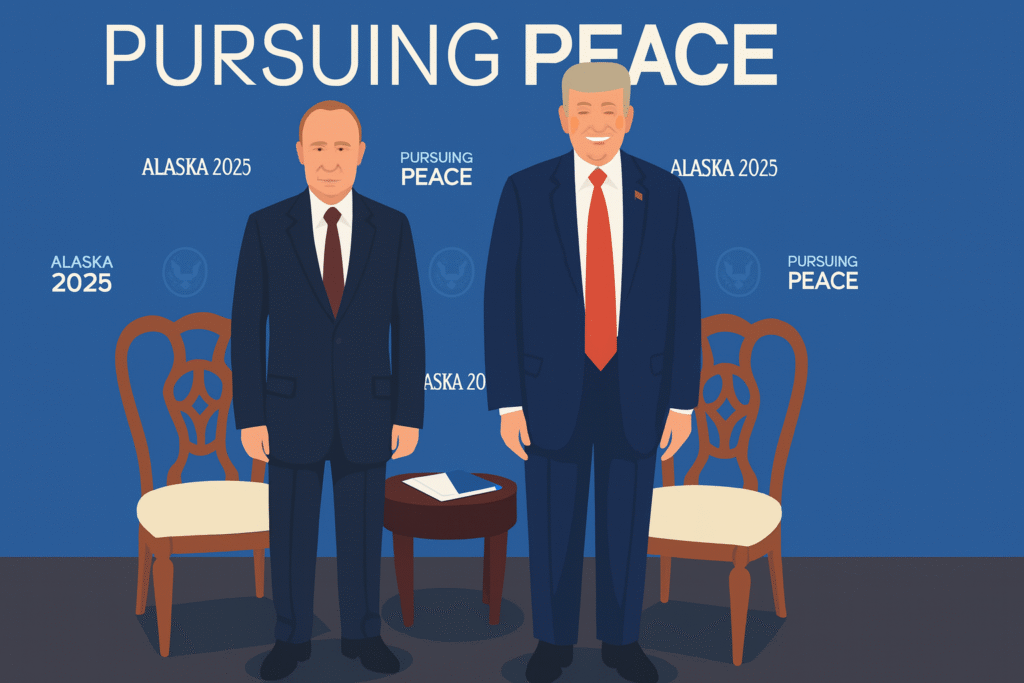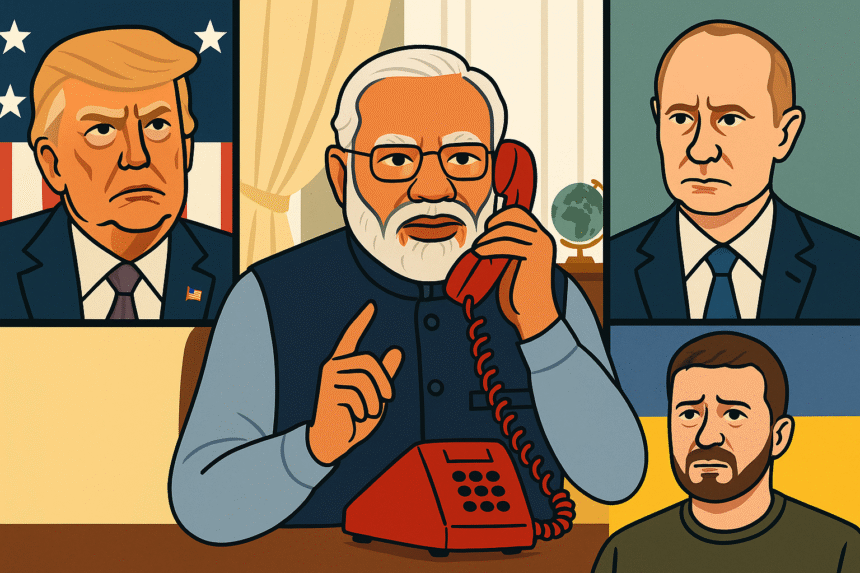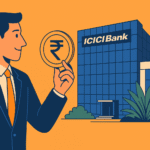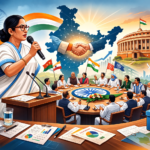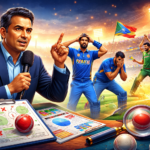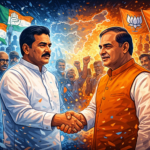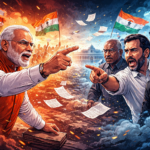Putin called PM Modi after meeting Trump in Alaska, sharing key details. Modi emphasized peace in Ukraine and India’s global balancing act.
When your phone rings, it’s usually a spam call about “free credit cards” or “extended car insurance.” But when Narendra Modi’s phone rings, it’s Vladimir Putin on the line. Yes, while we’re dodging telemarketers, the Prime Minister is fielding updates about a summit in Alaska with Donald Trump! Global hotline goals, right?
Some discuss weekend plans over the phone; Modi discusses world peace.
What Actually Happened
Russian President Vladimir Putin recently met former US President Donald Trump at a high-stakes Alaska Summit. Just days later, Putin picked up the phone—not to call a Moscow café for borscht—but to call Indian Prime Minister Narendra Modi.
During the conversation, Putin shared insights from his Alaska talks with Trump. Modi, in turn, underlined India’s long-standing position: peaceful dialogue, respect for sovereignty, and “let’s not make the world a boxing ring.”
And here’s the kicker: this wasn’t Modi’s only big international call of the week. Just before Putin, Modi had spoken to Ukrainian President Volodymyr Zelenskyy. The result? Modi is now one of the very few leaders who’s chatting directly with both sides of the conflict.
(Even international relations have a “he said, she said” vibe sometimes.)
Modi’s Diplomatic Balancing Act
India has always walked the fine line of diplomacy with enviable calm. On one side, there’s Russia, a long-time defense ally. On the other, Ukraine and the West, with whom India is deepening trade, technology, and strategic ties.
So, what did Modi say?
- He thanked Putin for the call and for sharing details of the Alaska meeting with Trump.
- He reaffirmed India’s consistent call for peace and dialogue in Ukraine.
- He made it clear that India will support all genuine efforts to bring the war to an end.
This is classic “strategic autonomy.” India doesn’t take dictation from anyone, whether it’s Washington, Moscow, or Brussels. Instead, it makes decisions based on India’s national interest and the bigger global picture.
(And let’s be honest, being the friend who can talk to everyone at the party is a pretty powerful position.)
Timing is Everything
The timing of Putin’s call is as interesting as the call itself.
- Just days earlier, Zelenskyy had called Modi to exchange Independence Day greetings. Modi used that opportunity to stress peace, prosperity, and stronger India-Ukraine ties.
- And before that, there was the Putin-Trump Alaska meeting, which has kept the world guessing about new alignments.
So, in a span of a few days, Modi was in direct talks with Zelenskyy, Putin, and indirectly Trump. If global politics had a WhatsApp group, Modi would be the admin.
Why the Alaska Summit Matters
Let’s not forget the bigger context.
- The Putin-Trump Alaska Summit wasn’t just another chit-chat. It came at a time when the Ukraine conflict continues to shape global security and energy prices.
- Trump, though not in office, remains a heavyweight voice in US politics. His meeting with Putin sent waves across Washington, Brussels, and Kyiv.
- By calling Modi soon after, Putin made sure India was not left in the dark.
This move signals how India has become an indispensable part of global diplomacy. Whether it’s the G20, BRICS, or peace talks, New Delhi is at the center of things.
For a deeper dive into why India’s voice carries weight, you can check analyses by The Brookings Institution which often explore India’s rising global role.
India’s Message to the World
In both conversations—first with Zelenskyy and then with Putin—Modi delivered the same core message:
- Stop the fighting.
- Talk it out.
- Think peace, think progress.
No fancy diplomatic jargon, just a simple truth: wars may win territories, but they lose futures.
India’s stance resonates globally because it comes from a country that has:
- Historic friendship with Russia.
- Growing partnerships with the US and Europe.
- A reputation for being neutral yet constructive.
This makes Modi’s words credible, not hollow.
The Wit Behind the Weight
It’s not just serious geopolitics; the situation does come with its share of ironies.
- Putin calls Modi to brief him about his meeting with Trump. Imagine the group selfie that could have been: “Trump, Putin, and Alaska – wish you were here, Modi.”
- Zelenskyy calls Modi with Independence Day wishes. Imagine the push notification: “Ukraine has sent you a friendship request. Accept?”
- Meanwhile, the Indian PM is fielding both calls like a seasoned cricketer batting on a tricky pitch: steady, calm, and focused on the long game.
Why This is Big for India
Here’s why the Modi-Putin call after Alaska is more than just a news flash:
- Global Recognition: Leaders are keeping India in the loop, which shows respect for India’s position.
- Peace Advocate Image: India strengthens its identity as a voice of reason.
- Strategic Leverage: Balancing Russia and Ukraine relations ensures energy security, defense ties, and global goodwill.
This is precisely why think-tanks like Carnegie Endowment for International Peace highlight India’s “swing state” role in global politics.
A Punchy Wrap-Up
While Putin updates Modi on Alaska, Zelenskyy shares hopes for peace, and Trump adds drama from the sidelines—the message is clear: India is no longer just watching history. It’s shaping it.
For the rest of us, the takeaway is simple: while we’re debating weekend movie plans, world leaders are debating the future of peace. And guess who’s the go-to guy for updates? Yes, Modi ji.
When the world dials India, it’s not for tech support—it’s for peace support.
🌍 What do you think about India’s growing global role? Should India take a stronger stand in conflicts, or continue its balanced diplomacy?
💬 Share your thoughts in the comments, pass this piece along to your friends, and don’t forget to explore more of our witty takes on world affairs!
Related Post Suggestion
👉 “Alaska Summit Fallout: No Ukraine Deal, India on Alert”
